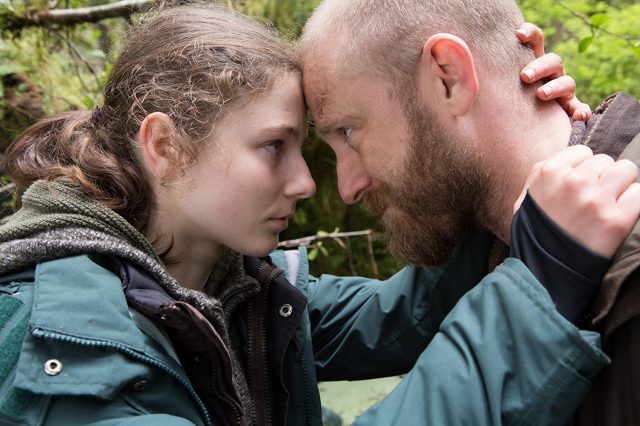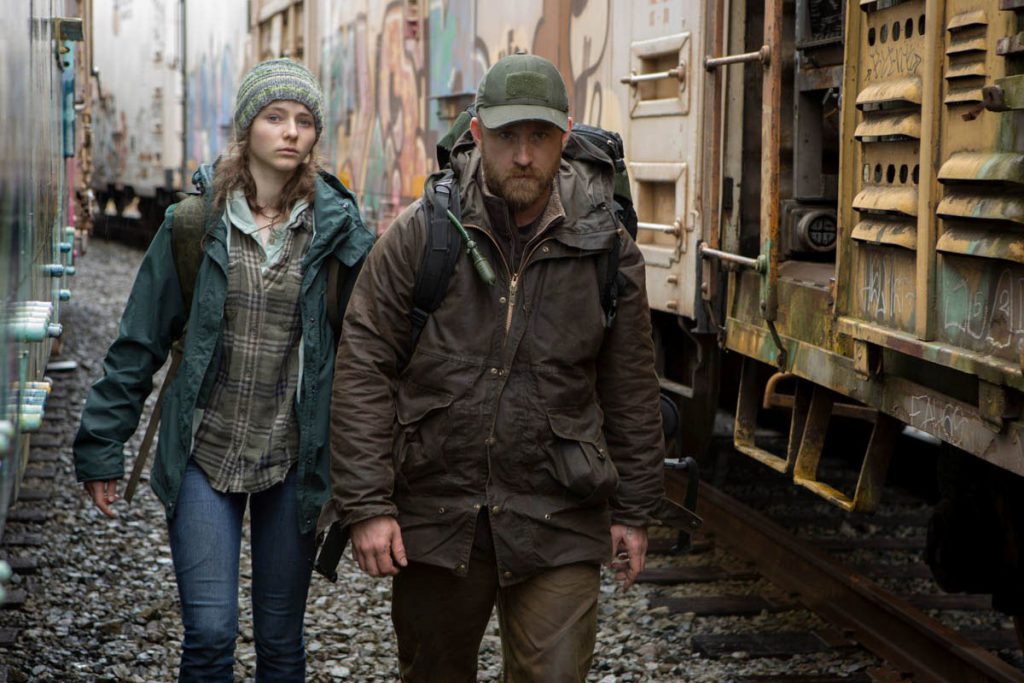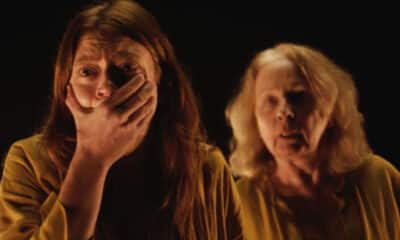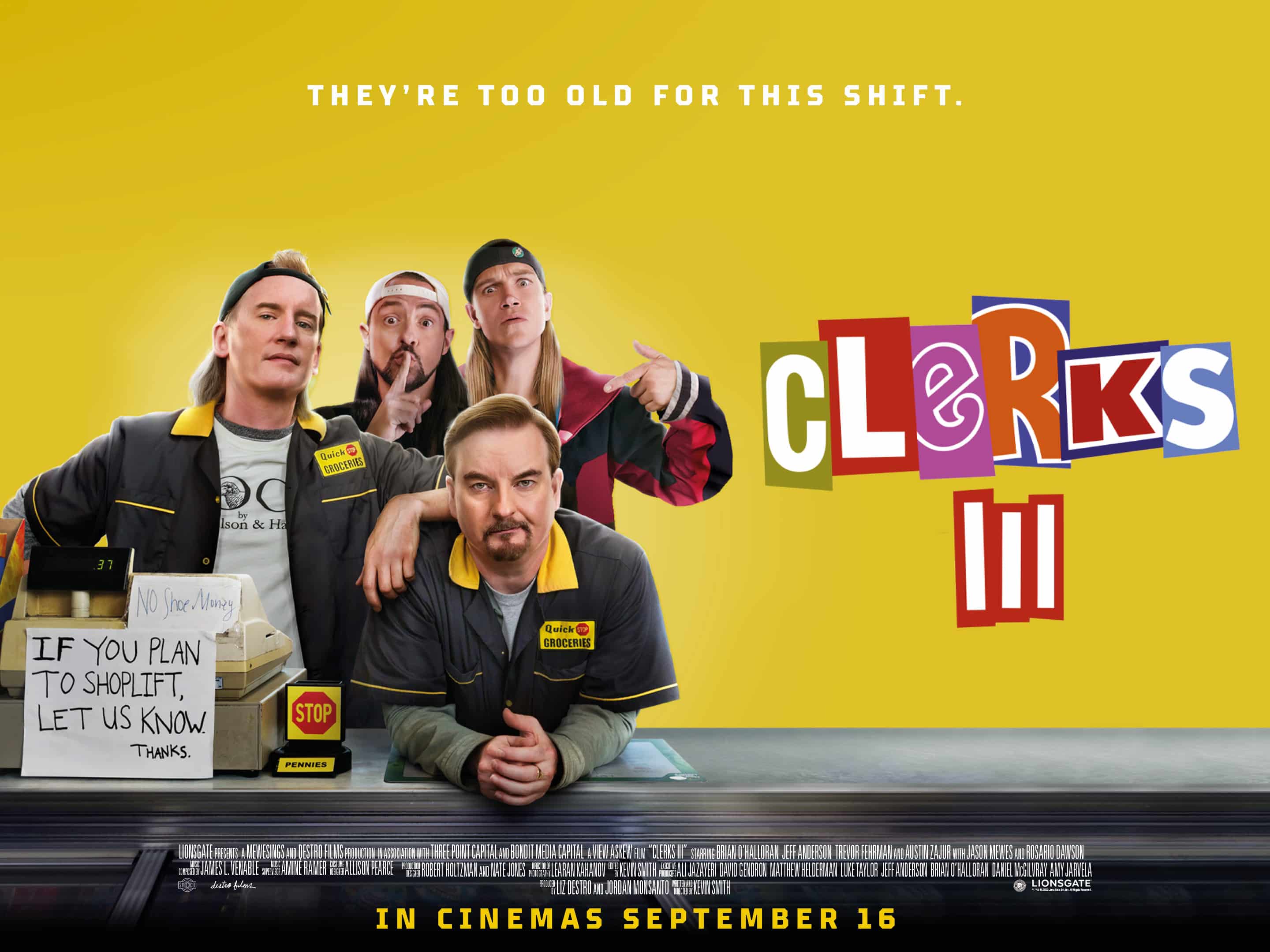
In cinemas this weekend is the critically lauded Leave No Trace, a film from Winter’s Bone director Debra Granik about a father and his teenage daughter who have been living off the grid in Oregon. Ben Foster portrays said father, Ben, a man tormented by traumas from his past who must adjust when a small mistake changes their way of life and ultimately their relationship.
The film gained attention at Sundance earlier on in the year where it received its world premiere, and then again when it hit Europe at the Cannes Film Festival in May. It was there where we caught up with Foster on the famous Croisette to talk about the film and his dazzling, career-best performance.
Let’s start off by talking about the intensity of this film. How did you get into it and what was working on this film like?
It was beautiful. It was a beautiful experience. The script was very simple, surprisingly simple. The pleasure for myself is in the question, it’s in the specialists who do these kinds of things for a living, masters of their craft – in this case, wilderness experts and survivalist experts. Having a few weeks to spend some time with them really impact my own appreciation of nature is something that I will take with me and it’s something that I encourage anyone to do – go look out in the world and pay attention to it. It’s like learning a language and it’s universal. The intensity of it was more about how much can you feel? In preparation for this when I read the script, me and my fiancee found out that we were going to have a baby girl and that filming was going to coincide with her and her second trimester, so she was going to come with me. So in Oregon I would go to work and imagine a daughter, my daughter and I’d come home and feel something – I’d miss her. It’s deep stuff. It’s deep, man.
I thought it was a kind of socialised condition. My parents were like ‘you don’t understand until you have a kid.’ You don’t. I’m the cliche. So in expectation of that, it was very intense because there’s the death of the individual. There’s the death of Ben’s first – me and my acting idea and I’m going to go to this place and film that movie and I’m gonna… It withers, and then something else grows. So that was the intensity – the heart expansion and fear because my kid was going to be born a couple of months after. I haven’t been able to palette cleanse since. I do a job after and it would wipe the last one out, but I haven’t gone back to work since Leave No Trace, I’ve just been a stay-at-home dad. My lady goes to work – she’s on a show – and I stay home, so the intensity is been a joyous one but there are stretchmarks all over the insides of me.
Is being so close to nature something that appeals to you?
Parts of me. A lot of Will’s ideas are ones that I could relate to. I’d want to protect a precious being from being polluted by a toxic culture. I get that, and I don’t know how to do that. I think his answer was two-pronged; he’s a man who has suffered – immense traumas are suggested in the theatre of war and his trauma is triggered by outside influences. Trauma isn’t necessarily connected to war – we’ve all experienced trauma – death, violence that’s erupted in our home life – emotionally or physically we’ve all experienced it, and if we haven’t, we will. That’s just being human beings. How we negotiate that defines our character. This character, in my mind, I can relieve myself of triggers, or at least push them away by pushing society away, and live with a code of honour or a philosophy, and at the same time, share a life, an unusual one, but a pure life with my kin. So, I understand that I think his choice, for me, would be extreme. Nature awareness is something I want to encourage and it’s medicine for me. Looking out at the ocean here has made this day better. We’re talking about movies, right? It’s cinema. It’s important. It’s storytelling, we need that, it connects us, how do you feel, how do I feel, how do we feel – we need this, it’s ancient, movies are very young but we need this. So, I think that’s important but it’s very easy to text our feelings to each other and lose this and look up. I understand it. It’s very important to me – whether it be in the forest, in the ocean or in the desert. It’s a long-winded way of say ‘kinda’.

In terms of the story, it’s based on a book, but there’s not too much known about the back story. Did you kind of, in your head, invent a backstory to these people? I mean, the mother is not really mentioned. Did you think about that?
For sure. Debra and I went through the script with the wilderness survival training which I really recommended everybody do – two days of wilderness appreciation. Just go out into nature and learn about it. It just feels good and you’ve got to keep that – it’s a real thing. In the training and the research, we realised that we could translate a lot of his past or suggest it without saying it. And that became very important to us, and the key for me is the line in the script ‘is it a want, or is it a need?’ This was about a chocolate bar from a grocery store. I say ‘both’. Does he want to say it, or does he need to say it? So, we did a pass of the script with that as a filter and we pushed the script through with thoughts of ‘does he need to say it?’ We wanted to eliminate most of the word ‘I’. There are a few of them in there but he uses them very sparingly. Instead of saying what unit he was in, I decided the baseball hat – it’s called an operator’s cap – which is usually used by people in the special forces. Suggesting these qualities -you don’t need to know. You don’t need to know that your father died when you were four and that’s why you became a dentist. You could just be a dentist and you can hold the weight of your life in your eyes. So, it became very important for us to stip him down and express that linguistically. It became very exciting to jam with.

Leave No Trace
What do you think happened to the real guy? Do you have your own theory?
I’ve heard, well, there’s one story that he was electrocuted and died. There’s another version where he just disappeared. Nobody knows.
What do you like to think happened to him?
My feeling is that the man needs to move. His heart is so unsettled – that momentum is the gnawing that is fire with fire and I think that that’s how his trauma expresses itself.
It feels like a really stripped down movie. What was it like filming it and what was the collaboration like between you and Debra Granik who has her earlier masterpiece in Winter’s Bone?
Did you see Down to the Bone? Her first film? It’s just gorgeous work on addiction. The documentary Stray Dog I really responded to, as a fan. She’s a very – you spoke with here – a fierce intellect – she care with every fiber in her and she’s interested in niche communities – about communities that aren’t often explored, particularly in America. She’s interested in finding it and relentless in her pursuit to find a moment. We were talking about Cat on a Hot Tin Roof last night and I was waiting for the click when you’re drinking – everybody’s waiting for that click – and Rick says ‘wait for the click – get enough drinks until it feels good.’ As a director, you just have to keep waiting for that click, and sometimes it can take a long time, and you don’t know what you’re after. Sometimes it can damage you, and I’d say Debra is a very brave filmmaker. She’s raw and I think that’s transmitted in her films. She’s a real artist and she’s not working in Hollywood. She needs to ask these questions her way, so it was quite an experience.
Leave No Trace is released in UK cinemas from Friday 29th June 2018. Read our five-star review of the film here.

Latest Posts
-


Film Reviews
/ 21 hours ago‘Fear Street: Prom Queen’ review: Dir. Matt Palmer (2025)
It has been four years since Leigh Janiak’s Fear Street trilogy took horror fans...
By Kat Hughes -


Film Reviews
/ 22 hours ago‘The Surrender’ review: Dir. Julia Max (2025)
As Julia Max’s debut feature, The Surrender, unfolds, the inspirations for the film become...
By Kat Hughes -


Film Trailers
/ 2 days agoFirst trailer for Darren Aronofsky’s ‘Caught Stealing’
Sony Pictures has released the debut trailer for Darren Aronofsky’s new film Caught Stealing,...
By Paul Heath -


Film Reviews
/ 3 days ago‘Lilo and Stitch’ review: Dir. Dean Fleischer Camp (2025)
Director Dean Fleischer Camp won audiences over with the fantastic Marcel the Shell with...
By Kat Hughes



